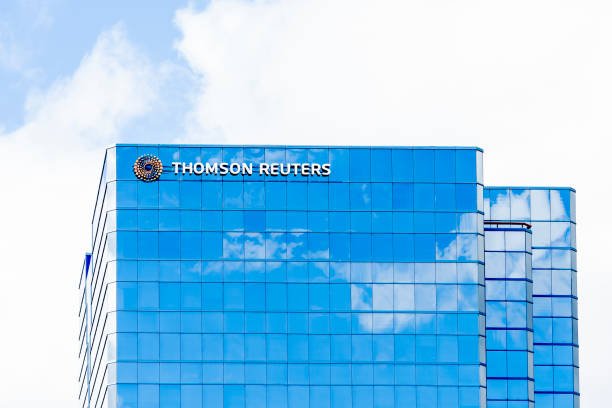Reuters, one of the world’s most respected news agencies, is suddenly at the center of controversy. Prominent figures, such as former U.S. President Donald Trump and tech mogul Elon Musk, have launched public attacks on the agency, accusing it of a conflict of interest and media manipulation. But what’s going on behind the scenes? Is this journalism, politics, or something else entirely? Let’s dive into the full story.

The Controversy: What Sparked the Criticism?
At the heart of the controversy is a $9 million U.S. government contract awarded in 2018, not to Reuters ‘ newsroom, but to a subsidiary known as Thomson Reuters Special Services (TRSS). This entity, legally distinct from the editorial wing of Reuters, offers cybersecurity and data analytics services to government agencies, including law enforcement.
Elon Musk recently accused Reuters of spreading “large-scale social deception”. Donald Trump echoed these sentiments, alleging a compromised journalistic integrity and even calling for the news agency to “give back the money.”
However, critics may be confusing Reuters, the news agency, with TRSS, which does not engage in journalism but provides tech-based services.
What Is Thomson Reuters Special Services?
TRSS is a private U.S.-based company owned by Thomson Reuters. It operates separately from the editorial newsroom and has specialized in providing data-driven solutions to national security, fraud detection, and cyber intelligence tasks for government clients. The 2018 contract in question funded such technical services, not journalism.
Reuters has clarified that its newsroom had no role or knowledge of this particular deal.
Editorial Independence and Reuters’ Trust Principles:
Founded in 1851, Reuters has built its reputation on strict principles of neutral, fact-based reporting. These include avoiding value-laden words, maintaining impartiality, and ensuring balance in conflict reporting. Their editorial independence is codified in their Trust Principles, which were created in 1941.
These principles prohibit any external influence—governmental, commercial, or ideological—from interfering with editorial decision-making. Reuters insists that this firewall is strictly upheld, even when its parent company engages in commercial deals.
Why Trump and Musk Are Pushing This Narrative:
Both Trump and Musk have had increasingly tense relationships with mainstream media, including Reuters:
-
Donald Trump has frequently accused global media of being part of a “fake news” establishment.
-
Elon Musk, since acquiring X (formerly Twitter), has positioned himself as an anti-mainstream-media figure, encouraging citizen journalism and criticizing legacy media as being biased.
Their combined criticism of Reuters fits into a broader pattern of distrust towards traditional media—especially media that reports critically on either figure’s ventures or politics.
Public Reaction and Expert Opinion:
Media experts have noted that while questioning media integrity is fair in a democratic society, conflating separate business divisions to discredit journalism is misleading. Several analysts point out that even companies like Google or Microsoft run defense and intelligence contracts while maintaining separate consumer-facing products.
Moreover, watchdog groups have urged both transparency and a clearer public understanding of how global media organizations are structured, especially in an era where misinformation spreads rapidly.
Historical Context: Not the First Time:
Reuters has previously faced criticism over:
-
Past funding by the UK government in the 1960s–70s to enhance overseas influence.
-
Editorial language policies, such as avoiding terms like “terrorist” unless quoted.
-
Its international partnerships with other global agencies like Russia’s TASS.
Despite these, Reuters has consistently defended its non-partisan news mission and its efforts to distinguish its commercial from editorial wings.
Reuters’ Response:
Reuters issued a statement reaffirming:
-
The firewall between its editorial operations and TRSS.
-
Its commitment to independent journalism.
-
That TRSS no longer operates under Reuters’ corporate umbrella in the same capacity.
This response aligns with Reuters’ long-standing commitment to truth and transparency, which is central to its identity as a global wire service used by media outlets worldwide.
While the recent attacks from Trump and Musk have thrown Reuters into the spotlight, the core issue stems from confusion—or deliberate conflation—between its editorial mission and a past commercial contract held by a separate entity. In today’s polarized media landscape, where trust is increasingly fragile, distinguishing between business operations and editorial values is more important than ever. Reuters, for its part, appears firm in its mission: delivering accurate, neutral journalism to the world.
ऐसे और भी एक्सप्लेनर लेखों के लिए हमारे साथ जुड़े रहें! Khabari bandhu पर पढ़ें देश-दुनिया की ताज़ा ख़बरें — बिज़नेस, एजुकेशन, मनोरंजन, धर्म, क्रिकेट, राशिफल और भी बहुत कुछ।
UAE Closes Its Airspace Amid Iran-U.S. Tensions, Major Flight Disruptions Reported

